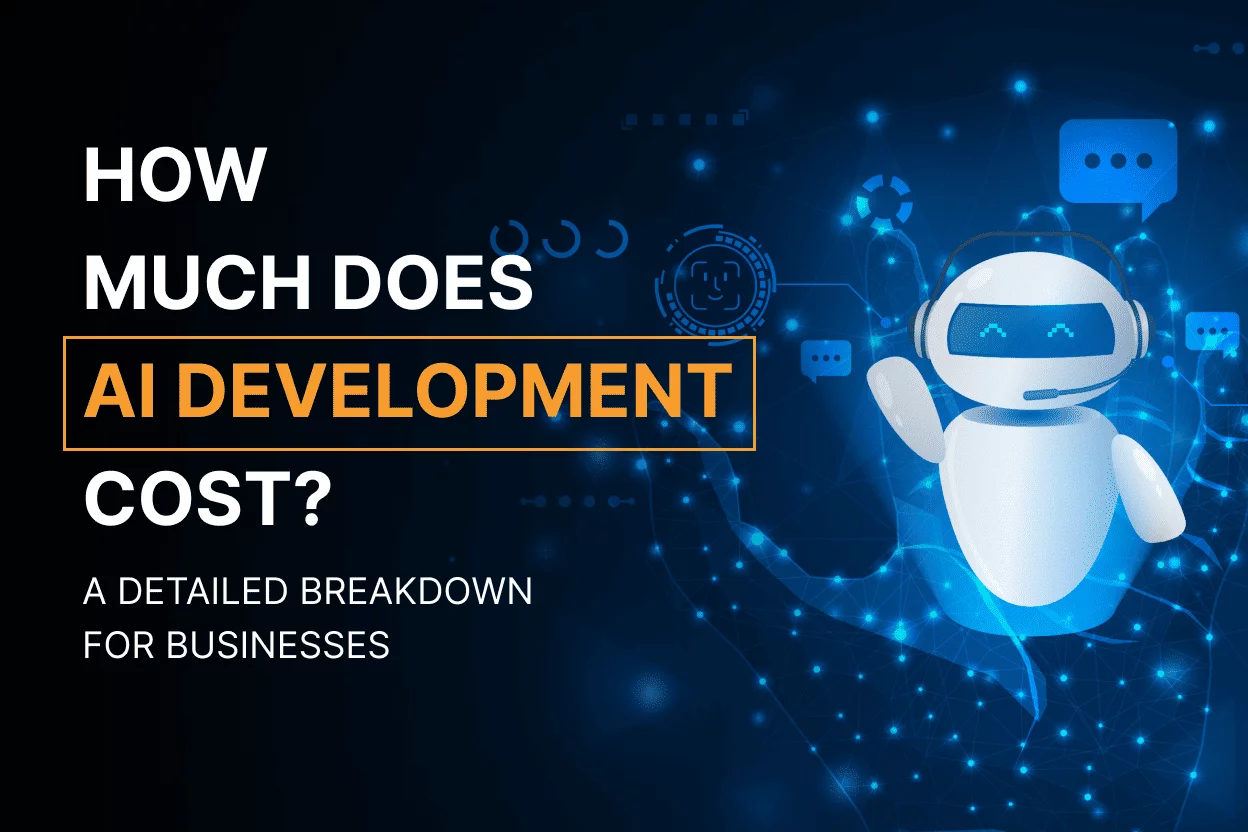Sales has transformed significantly with the rise of AI-driven sales intelligence tools. In contrast to traditional CRM systems, these AI tools offer real-time insights on contacts and companies, along with audience intelligence, enabling businesses to create more precise and impactful target audiences.
McKinsey reports that “around 65% of organizations have adopted AI in at least one business function, with customer engagement and marketing among the leading areas. In this article, we will discuss how AI-powered CRMs help boost sales efficiency for modern businesses.
Key Challenges in Modern Sales Pipelines
Sales teams face several challenges that directly impact pipeline performance. One of the main issues is the increasing market competition, where many businesses strive to attract the same customers. According to a PwC report 72% of business leaders believe generative AI will significantly enhance CRM efficiency and customer experience within the next two years, showing a clear shift toward smarter and data-driven sales systems.
This adoption is driven by the growing need for personalization and automation, as customers now expect more tailored experiences from the brands they engage with.
Some of the main challenges that sales teams are likely to encounter in 2025 include:
- Data overload: The growing volume of customer information can be difficult to manage, making it challenging for sales teams to identify actionable insights and make informed decisions.
- Personalization at scale: Delivering customized experiences to each customer while handling large datasets remains a complex and demanding task.
- Intense competition and market saturation: With more businesses vying for the same audience, standing out and differentiating from competitors has become increasingly difficult.
- Evolving buyer behaviors: The expansion of digital channels has transformed customer expectations, with buyers now seeking more seamless, personalized interactions with brands.
How AI-Powered CRM Solves Key Challenges in Modern Sales Pipelines
Modern sales teams face several challenges that can slow down pipeline performance and reduce conversion rates. AI-powered CRM solutions are designed to directly address these obstacles and enable smarter, more efficient sales operations.
1. Managing Data Overload
Sales teams today handle massive volumes of customer data from multiple touchpoints such as emails, social media, website interactions, and transaction histories. Traditional CRMs can leave teams overwhelmed, making it difficult to extract actionable insights. A Forrester report states that 70% of sales professionals feel overwhelmed by the amount of customer data they need to process daily. Traditional CRMs often leave teams struggling to extract actionable insights efficiently.
AI algorithms automatically analyze and organize customer data, identifying key patterns, trends, and high-potential leads. Predictive analytics highlight which prospects are most likely to convert, allowing sales reps to focus their efforts strategically rather than manually sorting through data.
2. Personalization at Scale
Customers now expect interactions that reflect their preferences, behaviors, and past engagement. According to a McKinsey report, companies that personalize customer experiences are 2–3 times more likely to see revenue growth. Delivering tailored experiences across thousands of leads is challenging without automation.
AI CRMs use machine learning to generate individualized recommendations, personalized email campaigns, and content suggestions for each customer. This ensures that every touchpoint feels relevant, improving engagement without adding extra work for the sales team.
3. Navigating Intense Competition and Market Saturation
Standing out in crowded markets requires precise targeting, timely follow-ups, and strategic relationship building. According to Forrester, 70% of sales leaders say that quickly acting on market changes is critical to winning deals, yet manual processes often slow response times. Manual processes make it difficult to respond quickly to changing market conditions.
AI-driven CRMs provide real-time insights into competitor activity, market trends, and customer intent signals. Sales teams can proactively adjust strategies, prioritize high-value opportunities, and optimize outreach to gain a competitive advantage.
4. Driving Efficiency and Smarter Decision-Making
AI-powered CRMs improve overall sales efficiency by automating repetitive tasks such as follow-ups, lead scoring, and reporting. Sales managers gain real-time dashboards and predictive insights that help them make informed, data-driven decisions faster.
Sales managers gain real-time dashboards and predictive insights, enabling faster, data-driven decision-making. A McKinsey study found that companies using AI-driven sales analytics achieve a 20–30% increase in sales productivity, demonstrating the tangible impact of AI-powered CRM tools on efficiency and revenue growth.
Key Differences Between AI-Powered CRM and Traditional CRM
As businesses strive to enhance customer relationships and improve sales processes, understanding the distinctions between traditional CRM solutions and AI-powered CRM system becomes essential.
| Features/Capability | Traditional CRM | AI-Powered CRM |
|---|---|---|
| Data Management | Requires manual data entry, time-consuming, and prone to errors. It can take up to 20% of a sales rep’s time. | Automated data entry reduces errors, frees staff for high-value tasks, improves efficiency. |
| Reporting & Analytics | Static reports with limited insights; reactive approach makes trend identification difficult. | Predictive analytics and real-time insights enable proactive decision-making and trend detection. |
| Personalization | Limited ability to provide tailored interactions; rule-based automation is inflexible. | Personalization at scale — AI analyzes customer behavior to deliver tailored experiences and dynamic content. |
| Customer Insights | Relies on historical data, reactive approach to churn or opportunities. | Predictive insights on customer behavior, trends, and potential churn allow proactive engagement. |
| Automation | Rule-based and rigid, cannot easily adapt to changing customer needs. | Intelligent workflows and predictive automation improve processes and adapt dynamically. |
| Data Quality | Fragmented data, manual entry leads to inconsistencies. | Centralized, clean, and continuously updated data for reliable decision-making. |
| Customer Engagement | Limited interaction customization, often generic communications. | Personalized journeys, tailored content, and recommendations improve engagement and loyalty. |
| Efficiency & Productivity | Manual tasks reduce time for strategic work. | AI-driven automation increases efficiency, allowing teams to focus on high-impact activities. |
| ROI & Value | Slower ROI due to setup time, manual effort, and reactive management. | Faster ROI, proactive strategies, and improved customer satisfaction drive revenue growth. |
| Adaptability | Difficult to scale or adapt to evolving customer expectations. | AI enables real-time adaptation to customer behavior and market trends. |
How Heathrow Airport Boosted Sales Efficiency with Microsoft Dynamics 365 Sales CRM
Below is the full case study detailing how Heathrow Airport leveraged Microsoft Dynamics 365 Sales CRM to improve operations, enhance partner relationships, and boost overall sales efficiency.
1. The Challenge
Heathrow Airport, as one of the world’s busiest airports, works with hundreds of business partners, vendors, and service providers. This complexity created multiple challenges:
- Managing relationships: Keeping track of contracts, interactions, and communications with each partner was manual and error-prone.
- Sales and service inefficiency: Without a centralized system, the sales and partnership teams spent a lot of time coordinating, following up, and reconciling data.
- Forecasting difficulty: It was hard to predict sales or partnership opportunities because data was scattered across multiple systems.
In short, they needed a system to organize partner data, automate workflows, and provide actionable insights.
2. The Solution: Dynamics 365 Sales CRM
Heathrow implemented Microsoft Dynamics 365 Sales CRM with AI-powered capabilities:
- Centralized Data Platform: All partner and vendor information was unified into a single system.
- AI-Assisted Sales Guidance: AI analyzed past interactions and deal trends to suggest which partners or opportunities were most likely to convert.
- Predictive Analytics: The system forecasted potential sales, helping managers prioritize efforts.
- Automation of Routine Tasks: Follow-ups, reminders, and status updates were automated, reducing manual workload.
This setup allowed sales and partnership teams to focus on high-value activities rather than administrative tasks.
3. The Outcomes / Results
After implementing Dynamics 365 Sales CRM with AI:
Reduced Sales Cycle by 20–25%
- AI helped identify the most promising leads quickly.
- Teams could act on high-priority opportunities faster, speeding up deal closures.
Improved Forecast Accuracy
- Predictive analytics provided better insights into upcoming sales and partnership trends.
- Managers could make proactive decisions instead of relying on historical data only.
Enhanced Collaboration Across Teams
- With a unified platform, different teams could share notes, updates, and insights in real time.
- Cross-functional collaboration improved efficiency and reduced miscommunication.
Final Thoughts
When planning to implement a CRM solution, it’s important to weigh the costs and advantages of both AI-driven and traditional CRMs. Although AI-powered CRMs may require a higher upfront investment, the long-term return on investment and efficiency improvements typically make them worthwhile.
According to industry experts, AI CRMs enable organizations to operate more intelligently by improving relationship management, enhancing productivity, and providing superior customer experiences at scale without burdening the team. Unlock the full potential of your sales and customer relationships with AI-powered CRM solutions. Take the first step toward smarter growth. Contact Intelegain today.
FAQs
Custom CRM development services streamline lead management, automate repetitive tasks, and provide actionable insights, allowing sales teams to focus on high-value activities and close deals faster.
Yes, AI-powered CRMs are increasingly accessible for small and medium-sized businesses. They help streamline operations, automate tasks, and improve decision-making without the need for large sales teams.
Yes. AI analyzes customer data to identify high-potential leads, helping sales teams focus on opportunities that are most likely to convert. Studies show AI-driven lead scoring can improve conversion rates by 20–60%.
Yes. AI agents in customer support can manage thousands of customer interactions at the same time, ensuring faster responses and reduced waiting times.
Transform Your Sales with AI-Powered CRM Solutions












